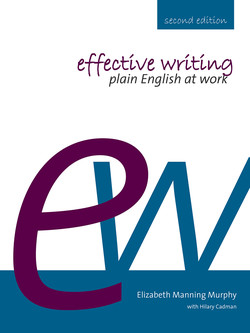Читать книгу Effective Writing - Elizabeth Manning Murphy - Страница 19
На сайте Литреса книга снята с продажи.
3.1 Use your dictionary
ОглавлениеNever guess at the spelling of a word if you know that you are a poor speller. If English is not your native language, take special care. English spellings are not always phonetic and you need to rely on your dictionary until you are comfortable writing in English. Become familiar with the format of your dictionary and what additional information you can learn from it besides spellings and definitions. Some people who are uncertain about spelling complain, ‘How can I use a dictionary when I don’t know what letter the word begins with?’ Take the word photograph. If you hear it for the first time, how do you know whether it begins with f or ph? Both have the same sound in English. Or the word through. Do we spell that threw, throo, thrwo, throu or through? There are words in English in which the oo sound is represented by each of these spellings – for example, chew, balloon, two, soup, throughout.
For fun, try to decipher this sentence which is spelt using letter combinations that produce sounds similar to the correct ones:
Thairs ghyti phoor lounch.
Here is the answer:
| Thairs | = There’s | air’s = ere’s (as in stairs) |
| ghyti | = fish | gh = f (as in enough) y = i (as in pyramid) ti = sh (as in nation) |
| phoor | = for | ph = f (as in photograph) oo = or (as in poor) |
| lounch | = lunch | ou = u (as in young) |
Is it any wonder that many people find some English spelling difficult?
Some useful advice for poor spellers is to write the word down, spelling it all possible ways, and then use a dictionary to check for the correct spelling. English spelling comes from a history of involvement with many languages. So studying the origin of a word will help you with the spelling of that word and of many others from the same source.
